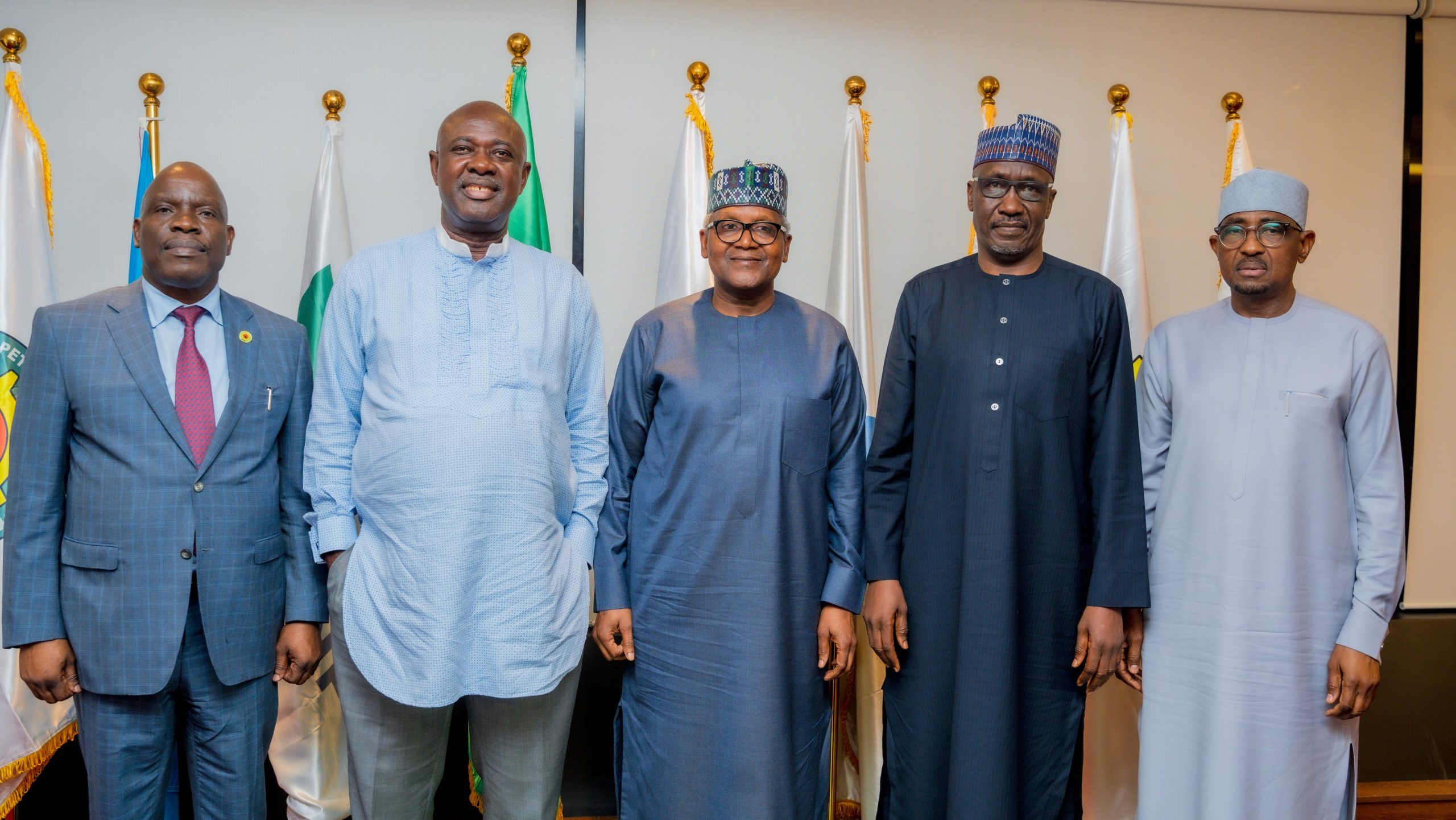BY SAM OTUONYE
The federal government through the Minister of State Petroleum Resources (Oil), Sen. Heineken Lokpobiri, Monday convened a crucial meeting with key stakeholders in the nation’s oil sector, to address and resolve the ongoing issues surrounding the Dangote Refinery.
Present at the meeting were Chairman and CEO of Dangote Group, Aliko Dangote, Authority Chief Executive of the Nigerian Midstream and Downstream Petroleum Regulatory Authority (NMDPRA), Farouk Ahmed, Chief Executive Officer of the Nigerian Upstream Petroleum Regulatory Commission (NUPRC), Gbenga Komolafe and Group Chief Executive Officer of the Nigerian National Petroleum Corporation Limited (NNPC), Mele Kyari.
According to a statement issued by the Special Adviser on Media and Communication to the Minister, Nneamaka Okafor, the stakeholders expressed their gratitude to the Minister for his exemplary leadership and timely intervention in facilitating this crucial dialogue.
The statement read: “The meeting focused on finding a sustainable and lasting solution to the current impasse affecting the Dangote Refinery, with all parties demonstrating a commitment to collaborative and proactive problem-solving.
“The Honourable Minister emphasized the importance of cooperation and synergy among all stakeholders to ensure the success and optimal performance of the Oil and Gas sector, which is pivotal for Nigeria’s economic growth and energy security.
“This meeting marks a significant step towards resolving the challenges and underscores the Minister’s dedication to fostering a conducive environment for Nigeria’s oil and gas sector.”
Reacall that the disagreement stemed from the NMDPRA’s attempt to renegotiate mining licenses held by the Dangote Group. According to reports, the NMDPRA was seeking to revise the terms of the mining licenses to ensure that the government got a fair share of the revenue generated from the mining activities.
However, the Dangote Group had argued that the proposed changes would make their operations unviable and could lead to job losses.
